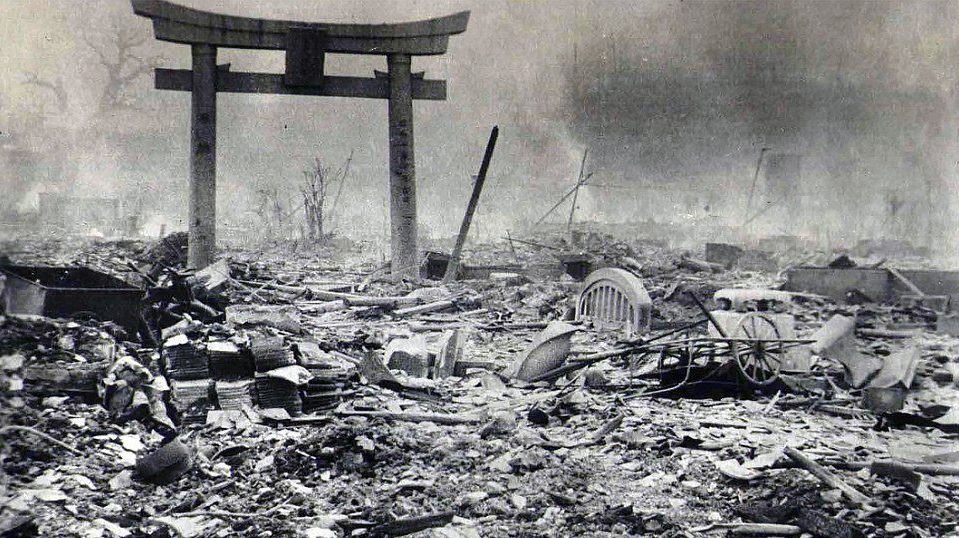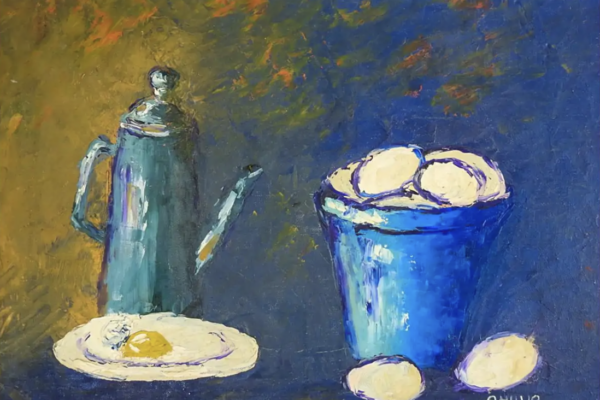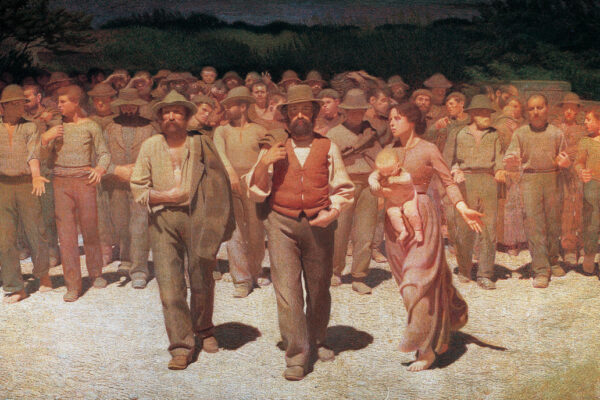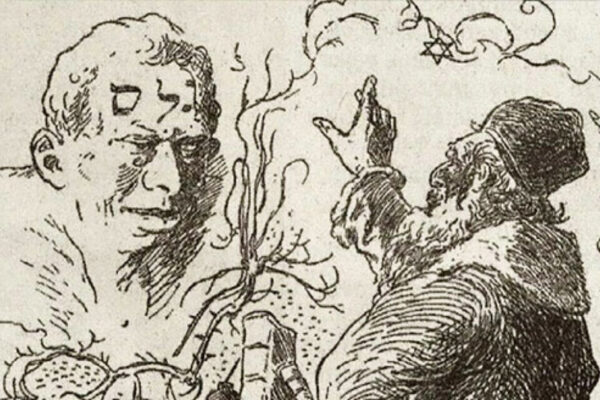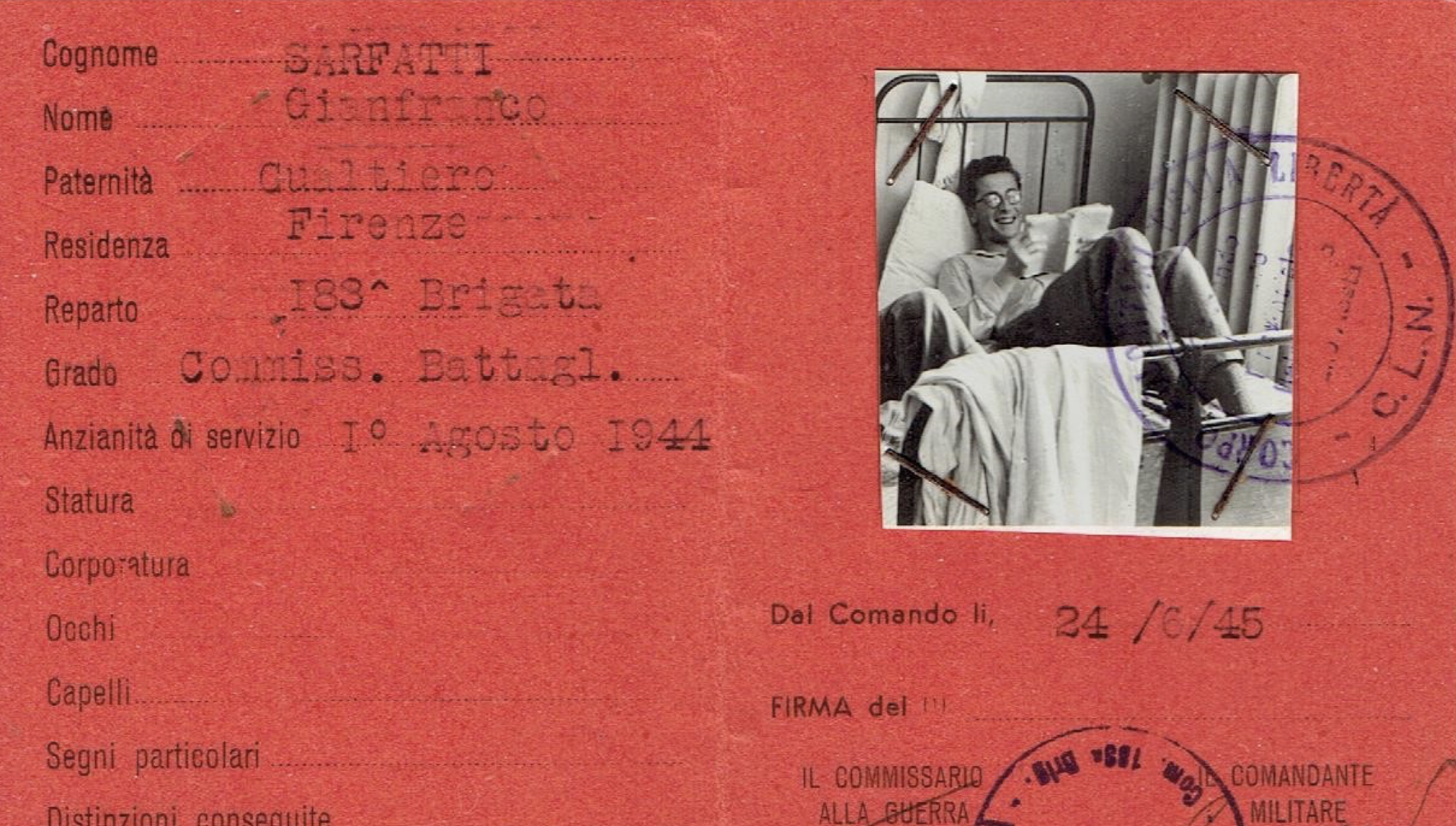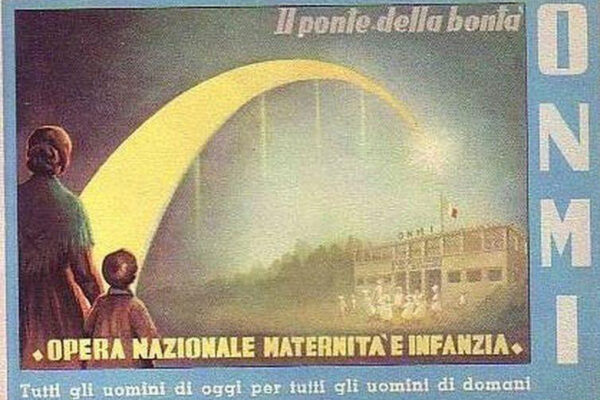Visiting the Peace Memorial Park in Hiroshima, one is struck by the silence. It is not real silence, after all the birds go about their business and so do the cars, most likely it is the kind of silence emulated by the knowledge that in this place, so and so years ago a “thousand suns” burned the image of man into the stone. Perhaps the skeletal remains of the iconic A-Bomb Dome in the distance create this silence, perhaps it is the garden itself, an art distinctly Japanese of containing the proximity of life to death as the essential nature of being. It is in a sense much like visiting a concentration camp, you lend your ear, but the silence is overwhelming and all that can be heard is the sound and fury piled on by the living over the silence of the dead. Hearing silence is always already slightly shameful, always on cue, always at the right place at a time that if never quite wrong, then never really useful.
Primo Levi did not write much about the atom bomb, surely the daughter of Rokhele in If Not Now When is born on the day of Hirsoshima’s bombing, and certainly there is meaning to that. And yes he did discuss Oppenheimer with Tulio Regge, but it doesn’t seem to have troubled Levi as much as the “slow systemic oppression” of the “conventional” murders in Vietnam and in Cambodia. A short time before the end of his life, Levi wrote the following in the introduction to The Drowned and the Saved:
“I have almost exclusively confined myself to the National Socialist Lagers because I had direct experience only of these; I also have had copious indirect experience of them, through books read, stories listened to, and encounters with the readers of my first two books. Besides up to the moment of writing, and not withstanding the horror of Hiroshima and Nagasaki, the shame of the Gulags, the useless and bloody Vietnam War, the Cambodian self-genocide, the desparecidos of Argentina, and the many atrocious and stupid wars we have seen since, the Nazi concentration camp still remain a unicum, both in its extent and its quality.” (The Drowned and the Saved, pp. 21)
It was almost the end of the cold war when Levi wrote this introduction, and though the specter of total human annihilation by the nuclear arsenal of the superpowers is present, it has no privileged place. What is unique about the experience of the Lagers compared to other forms of genocide and annihilation remains elusive. Yet Levi is honest enough to admit that perhaps it is he himself that is “confined” to his own experience (limitato…). This is as good a point as any to notice that Levi will never be the saint we sometimes would like him to be. He was all too human, bound by his own experience of which he gave us the most lucid and truthful account. On the subject of Hiroshima Levi did not know anything we don’t, and we must ask if his experience gave him insight into the matter that goes beyond what might be possessed by any of us.
There is a certain view of the Holocaust survivor holding him or her to posses some kind of moral insight not given to us “who live safely”. The survivor, the rare life that has seen the horror, already came into contact with death in a manner that endows his contemplations on other horrors, with special gravity. But the truth is that if we listen closely to the survivor, we realize that the tale he tells hardly offers insight into death but rather into the behavior of man who is struggling to survive under a regime of death. It is the horror of survival, not the silence of the crematoria that forms the real content of Levi’s writing:
“I must repeat: we, the survivors, are not the true witnesses. This is an uncomfortable notion of which I have become conscious little by little, reading the memoirs of others and reading mine at a distance of years. We survivors are not only an exiguous but also an anomalous minority: we are those who by their prevarication or abilities or good luck did not touch bottom. Those who did so, those who saw the Gorgon, have not returned to tell about it or have returned mute, but they are the “Muslims,” the submerged, the complete witnesses, the ones whose deposition would have a general significance.” (The Drowned and the Saved, pp. 83-84.)
This is a well known passage and it remains an agonizing recognition of the inevitable failure of listening to silence. There is a bitterness here that reflects the hardly audible difference between what the world sees in the survivor and what the survivor saw. It is in this space that Levi’s most interesting contemplation of Hiroshima takes place, in form of a poem named La Bambina di Pompei translated into English as Girl-Child of Pompei
Since everyone’s anguish is our own,
We live ours over again, thin child,
Clutching your mother convulsively
As though, when the noon sky turned black,
You wanted to re-enter her.
To no avail, because the air, turned poison,
Filtered to find you through the closed windows
Of your quiet, thick-walled house,
Once happy with your song, your timid laugh.
Centuries have passed, the ash has petrified
To imprison those delicated limbs forever.
In this way you stay with us, a twisted plaster cast,
Agony without end, terrible witness to how much
Our proud seed matters to the gods.
Nothing is left of your far-removed sister,
The Dutch girl imprisoned by four walls
Who wrote of her youth without tomorrows.
Her silent ash was scattered by the wind,
Her brief life shut in a crumpled notebook.
Nothing remains of the Hiroshima schoolgirl,
A shadow printed on a wall by the light of a thousand suns,
Victim sacrificed on the altar of fear.
Powerful of the earth, masters of new poisons,
Sad secret guardians of final thunder,
The torments heaven sends us are enough.
Before your finger presses down, stop and consider.
(Translated from the Italian by Ruth Feldman)
The poem is remarkable, all the more so since at first reading it seems to be a not particularly strong one written from a perfectly banal pacifistic point of view. A second reading though, reveals a deep and thoughtful poem that relates in a manner never broached by prose, to the place of Hiroshima in Levi’s mind. The poem begins with the child of Pompeii, one of those plaster casts made by Fiorelli at the end of the 19th century that capture the horror of life frozen into death in such a heart wrenching way. True, it is always an instant that separates life from death, yet the twisted crouching figure of Pompeii childhood is iconic for being that moment that always goes by unnoticed, frozen in time. To bring the girl to life Levi invokes the walls happy to hear her song, her laughter, the sentient stone defying the air turned poison long gone, the ash has turned to stone, conserving the emptiness in the form of life.
The emptiness filled by plaster is testimony, a terrible testimony and an even more terrible figure of Levi himself as a witness. The witness is an image of an emptiness left behind after the catastrophe. Here Levi reverts in earnest to Dante of Canto 26 of the Inferno and to his own chapter of If This is a Man “The Canto of Ulysses”, as the figure of the girl is revealed to be testimony to “how much our proud seed matters to the gods”. The lines are unmistakably echoing the canto’s: “Considerate la vostra semenza” – “Consider well the seed that gave you birth” in Mandelbaum’s translation. It is this phrase that is revealed to constitute the subtextual backbone of the poem as it ends with the address to those with their hands on the trigger to “stop and consider” (fermatevi e considerate). This is the canto that Levi in If This is a Man is trying to remember as he instructs Jean Samuel the French Pikolo. There is imponderable depth to this meeting of texts, the kind that can only be made available by poetry; Ulysses the resourceful man, the long suffering, the trickster is all about crossing the line drawn by the gods. As he goads on his companions to go beyond the Pillars of Hercules, in name of the “proud seed”, it all ends in death.
At the end of the “Canto of Ulysses” in If This is a Man, Levi, pressed for time by the line for soup desperately grasps at: “something gigantic that I myself have only just seen in a flash of intuition, perhaps the reason for our fate, for our being here today…” (pp. 115) What he perceived exactly Levi doesn’t say, but in the end, perhaps it is about the line that is crossed. The line between life and death, the line marking immortality always denied to man and women, the line so greedily contracted by man as he dispatches his fellow to the other side.
The passage to the Dutch girl from the girl of Pompeii is less abrupt than would seem. Mediated by Dante read by Levi she is nothing but writing. By not mentioning Anne Frank by her name Levi wisely avoids the fetishized brand that he himself is rapidly becoming. Her ashes unconserved, nothing remains of her “youth without tomorrows”. It is a heartbreaking way to put it, is writing less than the emptiness left in the petrified ashes, it would seem so. A crumpled notebook in which her life is shut, that is all, no miracles, no victory over evil, writing is not nothing, it is both less and more, it is unformed emptiness, a hole filled with a void incapable of containing even plaster.
Nothing is what remains of the Hiroshima schoolgirl. A shadow burned into a wall, the world turned into a film capturing its wars by the light of the bomb. The poem contains a clear progression or rather a regression from form to writing to nothingness. Humanity moves, from the innocent coincidental natural catastrophe to the meditated hunt of the Dutch girl. From seeking knowledge in order to attenuate natural calamities to the unprecedented scientific and technical effort invested in the destruction of the Hiroshima schoolgirl.
The altar of fear is high and ancient. In the beginning the gods were worshiped because they, gods, nature, were always threatening to disrupt the sweet song of our daughter with volcano, flood or famine. Oddly, as science has become better able to control the elements or at least avoid nature’s perniciousness, it also became that which we must fear. Perhaps man’s quest for knowledge and mastery of the elements is bound to sour, but this is not what the poem seems to be saying as it turns to those who wield the killing power.
There is an interesting tension between the modern sacrifice of the schoolgirl to the ancient practices of virgin sacrifice, only the altar having changed somewhat. The powerful of the earth are now those who maintain the altar of fear, wielding weapons that can dispatch all of humanity beyond the line that separates life from death. At Hiroshima and Nagasaki in a fraction of a second, thousands of souls evaporated, most not even leaving a shadow, a trace. The altar of fear is never satisfied, the gates of Mars never shut, there is always some little girl deemed deserving of some shock and awe, of some violence to end all violence. The “final thunder” is never thought of in its finality, violence perpetrated on the innocent in order to demonstrate a finality to be averted. Perhaps it is this lie that is responsible for the sadness of the powerful, the gnawing knowledge that shock and awe is always kill and maim, the demonstration of the power to kill never really removed from the actuality of killing.
Powerful of the earth, masters of new poisons, Sad secret guardians of final thunder, The torments heaven sends us are enough. Before your finger presses down, stop and consider.
The final lines of the poem are clear in light of the diminishing presence of the victims. The torments supplied by heaven are enough, we know. The Pompeii child proves it. Caught by the wrath of the gods, the emptiness of her petrified demise is a presence unsurpassed by the words without future of the Dutch girl. Both are more than the shadow of the Hiroshima schoolgirl burnt to the wall. Still addressing the powerful of the earth with fingers on a trigger, Levi begs them to stop and consider. (fermatevi e considerate)
To consider is not only what Dante’s Ulysses asks his companions to do before leading them to their death; it is also what Levi asks of us “who live secure” in the poem that opens If This is a Man and that he later named Shemà:
Consider if this is a man
Who labors in the mud
Who know no peace
Who fights for a crust of bread
Who dies at a yes or a no.
Consider whether this is a woman,
Without hair or name
With no more strength to remember
Eyes empty and womb cold
As a frog in winter.
Consider that this has been:
This is only part of the poem, but suffices to see how these lines are imbued with Dante and at the same time are given a Hebrew command that is also the name of the Hebrew prayer that is said at least three times a day and is the minimal knowledge shared by Jews. In a very real way the poem is the zero degree of Levi’s testimony, its most primary formation. When Levi described the process of writing If This is a Man, he spoke of an inverse order:
“In a few months of work it was done; pushed by the urgency of the memories I had written the seventeen chapters almost precisely backwards, I mean starting with the last one. Then I wrote the preface, and in the end I added as epigraph a poem that was dancing in my head already in Auschwitz and that I wrote a few days after the return.” (L’asimmetria e la vita, pp. 38)
In final analysis, this inverse order of composition, Levi describes was then transcribed into a proper order, the poem Shemà (the imperative “hear” in Hebrew) stands at the core of Levi’s writing and it begs us to consider. In “The Child of Pompeii, there are different orders the “right” one progressing from antiquity to the end of the war. The other is the presence of the witness that diminishes, the traces fading until nothing is left but writing. The shadow of the Hiroshima schoolgirl is the most disturbing; having been saved the suffering of the Dutch girl, her death seems almost less horrific. Levi exposes the optical illusion of survival: the tales of the survivors, of the witnesses, is always about the deferral of death and the boundless suffering that accompanies that deferral in the camps or in the prison of an attic. Survival moves our gaze away from the unnamed suffering, the nameless dead. Levi the poet forces us to return our gaze away from the prose and towards the absence; to listen to the silence, to hear the voices of vaporized life.
Technology compounds the time and travail it took to murder the Jews into a mere push of the button. So easy it has become, leaving just a shadow, not even ashes. Like the altars of yore, the life of young girls, of beloved daughters, adored sisters, is sacrificed on a constantly renewed altar of fear. Not even leaving “eyes with which to weep the destruction”. If we cannot see, perhaps we can hear, almost as if Levi had never asked anything more, but for us to hear and consider his shadow joining that of the Hiroshima schoolgirl in this modern version of world turned Inferno.
Especially now that Levi has become a witness-saint-philosopher, poetry, always on the margins of Levi’s oeuvre is largely seen as an art Levi dabbled in with a lesser degree of success. It is difficult to see how poetry is the foundation of Levi’s writing but also to contain the deepest expression of Levi’s thought. The Child of Hiroshima, probably contains Levi’s most profound thoughts on Hiroshima and the specter of nuclear destruction, and teaches us something about the kind of thought possible within it. Poetry with its taught relationship to silence becomes Levi’s most profound expression of being in the world as a witness, of bearing witness to what “man’s presumption made of man in Auschwitz”. (If This is a Man, pp. 55)
The rest is silence.


